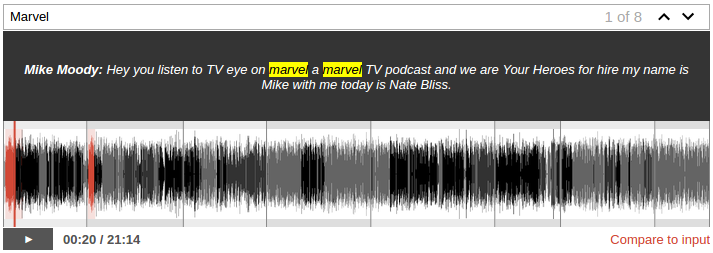After an initial private beta phase, we are happy to open the Auphonic automatic speech recognition integration to all of our users!
 Our WebVTT-based audio player with search in speech recognition transcripts and exact speaker names.
Our WebVTT-based audio player with search in speech recognition transcripts and exact speaker names.
We built a layer on top of multiple engines to offer affordable speech recognition in over 80 languages. This blog post also includes 3 complete examples in English and German.
Search within Audio and Video
One of the main problems of podcasts, audio and video is search.
Speech recognition is an important step to make audio searchable:
Although automatically generated ...



